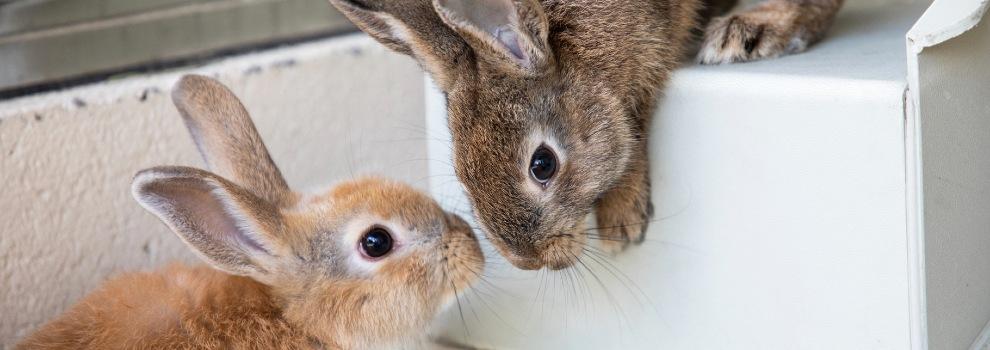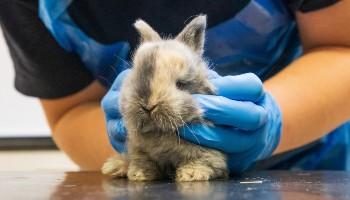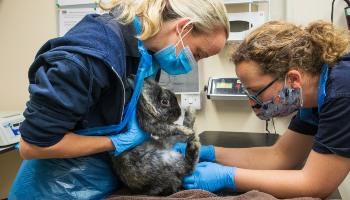How To Keep a Rabbit Healthy & Happy | RSPCA - RSPCA
What a rabbit needs to stay happy and healthy
- Neutering - unneutered females are at high risk of developing womb cancer, and unneutered rabbits are more likely to fight. You should therefore neuter your rabbits unless you intend to breed them, have plans in place for caring for both parents and offspring.
- The right food - this should mainly be hay and/or grass to help prevent dental and gut disease. Check your rabbits eat everyday and pass plenty of dry droppings. If their eating or drinking habits change, or the quantity of droppings reduces or stops, ask your vet immediately - they could be seriously ill.
- Checking for signs of illness or injury everyday, including if you go away.
- Their front teeth and nails checked at least weekly - these grow quickly. Only vets should correct overgrown or misaligned teeth.
- Veterinary check-ups, at least annually - including treatment for external and internal parasites such as fleas and worms.
- Vaccinating against myxomatosis and Viral Haemorrhagic Disease (VHD), as advised by your vet.
- Keeping away from wild rabbits and areas where wild rabbits live - they can carry diseases.
- Well-maintained coats - groom them regularly.
- To be identifiable and ideally microchipped, so they can get quickly treated if they're injured or returned if they get lost.
Monitoring your rabbit's health and wellbeing
Rabbits are vulnerable to infectious diseases and illnesses, especially dental disease. They feel pain, but don't show any outward signs of it, which means they may suffer before you notice it. Keep a close eye on their health everyday, and especially look out for:
- Changes in their behaviour, which can indicate illness or pain. Stressed rabbits are more likely to become ill.
- In warm weather, check the fur and skin around their bottom and tail area twice a day. Urine staining and stuck droppings attract flies, which causes flystrike (which is often fatal).
Read more in our pages on rabbit health checks and handling, and ask your vet immediately if you suspect they're in pain, ill or injured. Only treat your rabbit with medicines recommended for them by a vet, as other animals' medicines are dangerous to rabbits.
Finally, consider taking out pet insurance to cover the costs of vet treatment for your rabbit. Many vets provide health care packages, including Medivet, CVS UK Ltd veterinary group practices and Companion Care/Vets4Pets. These can help to manage costs and ensure pets receive regular vet check-ups and preventative treatments. Talk to your vet and see if they offer a health care scheme.



